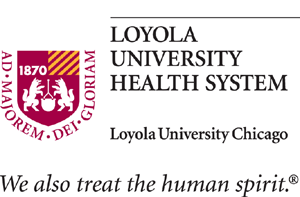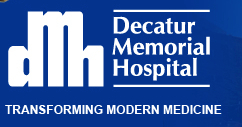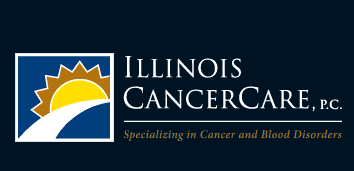Sunitinib, Cetuximab, and Radiation Therapy in Treating Patients With Locally Advanced or Recurrent Squamous Cell Carcinoma of the Head and Neck
| Status: | Recruiting |
|---|---|
| Conditions: | Skin Cancer, Cancer, Cancer |
| Therapuetic Areas: | Oncology |
| Healthy: | No |
| Age Range: | Any |
| Updated: | 11/18/2012 |
| Start Date: | July 2007 |
A Phase I Trial of Concurrent Chemoradiation/Chemoreirradiation With Cetuximab (ERBITUX®), Sunitinib, and Accelerated Radiation in Patients With Locally Advanced/High-risk/Recurrent Poor Prognosis Head and Neck Cancer
This phase I trial is studying the side effects and best dose of sunitinib when given
together with cetuximab and radiation therapy in treating patients with locally advanced or
recurrent squamous cell carcinoma of the head and neck. Sunitinib may stop the growth of
tumor cells by blocking some of the enzymes needed for cell growth and by blocking blood
flow to the tumor. Monoclonal antibodies, such as cetuximab, can block tumor growth in
different ways. Some block the ability of tumor cells to grow and spread. Others find tumor
cells and help kill them or carry tumor-killing substances to them. Radiation therapy uses
high-energy x-rays to kill tumor cells. Giving sunitinib together with cetuximab and
radiation therapy may kill more tumor cells
PRIMARY OBJECTIVES:
I. To assess the safety, the maximum tolerated dose, and the dose limiting toxicity of
sunitinib malate when administered in combination with cetuximab and radiotherapy in
patients with locally advanced, recurrent, or second primary poor prognosis, high-risk
squamous cell carcinoma of the head and neck.
SECONDARY OBJECTIVES:
I. To describe the toxicity profile of this regimen. II. To explore the tolerability and
feasibility of sunitinib malate when administered in combination with cetuximab and
radiotherapy in these patients.
III. To assess the best overall response rate (complete and partial response) after
completion of treatment.
IV. To assess the locoregional control rate. V. To assess the distant control rate. VI. To
assess the pharmacokinetics of sunitinib malate delivered by percutaneous gastrostomy tube.
OUTLINE: This is a dose-escalation study of sunitinib malate.
Patients receive sunitinib malate orally or by percutaneous gastrostomy tube once daily,
cetuximab IV over 60-120 minutes once weekly, and undergo concurrent radiotherapy once or
twice daily, 5 days a week, for 7-9 weeks in the absence of disease progression or
unacceptable toxicity. Patients with persistent disease undergo surgical resection.
*NOTE: *Patients may have resection prior to enrollment on protocol provided they have
high-risk features for recurrence.
Some patients undergo blood sample collection at baseline and periodically during study for
pharmacokinetic analysis of sunitinib malate and metabolites.
After completion of study treatment, patients are followed up periodically for up to 6
years.
Inclusion Criteria:
- Histologically or cytologically confirmed squamous cell carcinoma of the head and
neck, meeting any of the following criteria:
- Recurrent disease
- Second primary locoregional recurrence* with no clinically measurable distant
disease
- Poor prognosis non-metastatic head and neck carcinoma (M0)
- Must have undergone radiotherapy as a component of prior treatment
- Not a candidate for surgical resection with curative intent
- Patients with high-risk features at resection or following resection for
recurrence are eligible
- Must have locoregional tumor amenable to radiotherapy or reirradiation with curative
intent
- Entire gross tumor recurrence volume must be able to be treated without
exceeding a cumulative spinal cord dose of 50 Gy
- Unresected tumors must be measurable according to RECIST
- No known brain metastases
- ECOG performance status (PS) 0-2 OR Karnofsky PS 60-100%
- Life expectancy > 12 weeks
- WBC ≥ 3,000/mm^³
- ANC > 1,500/mm³
- Platelet count > 100,000/mm³
- Total bilirubin < 1.5 times upper limit of normal (ULN)
- INR and PTT ratio < 1.5
- AST and ALT ≤ 2.5 times ULN
- Creatinine normal OR creatinine clearance > 60 mL/min
- Urine protein no more than trace
- Hematocrit ≥ 28%
- Hemoglobin ≥ 9 g/dL
- QTc < 500 msec
- Not pregnant or nursing
- Negative pregnancy test
- Fertile patients must use effective contraception
- The following patients are eligible provided they have New York Heart Association
class II cardiac function on baseline ECHO and MUGA:
- Asymptomatic on treatment
- Prior anthracycline exposure
- Prior central thoracic radiotherapy included the heart in the radiotherapy port
- No clinical evidence of active infection of any type, including hepatitis B or C
virus
- Infections controlled with therapy are allowed
- Patients with hepatitis B or C on antiviral therapy with no detectable virus are
allowed
- No immune deficiency and/or HIV positivity
- No history of allergic reactions attributed to compounds of similar chemical or
biological composition to sunitinib malate
- No gastrointestinal tract disease or condition, including any of the following, that
impairs ability to retain sunitinib tablets:
- Inability to take oral medication or a requirement for IV alimentation
- Prior surgical procedures affecting absorption
- Active peptic ulcer disease
- None of the following conditions allowed:
- Serious or nonhealing wound, ulcer, or bone fracture
- Abdominal fistula, gastrointestinal perforation, or intra-abdominal abscess
within the past 28 days
- No significant concurrent medical or psychiatric illness which, in the opinion of the
investigator, would interfere with the patient's ability to participate in the trial
- No active carotid artery involvement
- No history of documented thrombosis (pulmonary embolism within the past 12 months or
deep vein thrombosis [DVT] within the past 6 months), known coagulopathies or
thrombophilia, or evidence of DVT/thromboembolic event
- No history of the following cardiovascular conditions :
- Myocardial infarction within the past 12 months
- Cardiac arrhythmia or serious ventricular arrhythmia (ventricular fibrillation
or ventricular tachycardia ≥ 3 beats in a row) within the past 12 months
- Stable/unstable angina within the past 12 months
- Symptomatic congestive heart failure within the past 12 months
- Coronary/peripheral artery bypass graft or stenting within the past 12 months
- No cerebral vascular disease, cerebrovascular accident (stroke), or transient
ischemic attack within the past 6 months
- QTc prolongation (QTc interval ≥ 500 msec)
- New York Heart Association class III-IV congestive heart failure
- Poorly controlled hypertension (i.e., systolic blood pressure [BP] ≥ 140 mm Hg
or diastolic BP ≥ 90 mm Hg)
- Other significant ECG abnormalities
- See Disease Characteristics
- Recovered from all prior radiotherapy and chemotherapy
- More than 4 months since prior radiotherapy to the head and neck
- More than 2 weeks since prior hormone replacement therapy or hormonal contraceptives
- More than 4 weeks since prior and no other concurrent investigational agents
- At least 1 month since prior surgery (unless ambulatory within 48 hours)
- At least 7 days since prior and no concurrent CYP3A4 inhibitors, including any of the
following:
- Azole antifungals (ketoconazole, itraconazole)
- Clarithromycin
- Erythromycin
- Diltiazem
- Verapamil
- HIV protease inhibitors (indinavir, saquinavir, ritonavir, atazanavir,
nelfinavir)
- Delavirdine
- At least 12 days since prior and no concurrent CYP3A4 inducers, including any of the
following:
- Rifampin
- Rifabutin
- Carbamazepine
- Phenobarbital
- Phenytoin
- St. John wort
- Efavirenz
- Tipranavir
- Concurrent coumarin-derivative anticoagulants (e.g., warfarin up to 2 mg daily)
allowed for prophylaxis of thrombosis
- Concurrent use of medications known to affect the conductive system (e.g.,
beta-blockers, calcium channel blockers, or digoxin) allowed under investigator
supervision
- No concurrent agent with proarrhythmic potential, including any of the following:
- Terfenadine
- Quinidine
- Procainamide
- Disopyramide
- Sotalol
- Probucol
- Bepridil
- Haloperidol
- Risperidone
- Indapamide
- Flecainide
- No concurrent chronic steroid treatment for > 6 months (i.e., prednisolone doses > 10
mg/day or equivalent)
- No concurrent combination antiretroviral therapy for HIV-positive patients
- No concurrent amifostine
- No concurrent commercial agent or therapy intended to treat head and neck cancer
- No other concurrent anticancer therapy
We found this trial at
12
sites
5841 S Maryland Ave
Chicago, Illinois 60637
Chicago, Illinois 60637
1-773-702-6180

University of Chicago Comprehensive Cancer Center The University of Chicago Comprehensive Cancer Center (UCCCC) is...
Click here to add this to my saved trials
11143 Parkview Plaza Dr # 100
Fort Wayne, Indiana 46845
Fort Wayne, Indiana 46845
(260) 484-8830

Fort Wayne Medical Oncology and Hematology Fort Wayne Medical Oncology and Hematology provides state-of-the-art cancer...
Click here to add this to my saved trials
Click here to add this to my saved trials
Click here to add this to my saved trials
22 South Greene Street
Baltimore, Maryland 21201
Baltimore, Maryland 21201
410-328-7904

University of Maryland Greenebaum Cancer Center The University of Maryland Marlene and Stewart Greenebaum Cancer...
Click here to add this to my saved trials
Decatur Memorial Hospital An American flag bearing only 48 stars waved above Decatur Memorial Hospital...
Click here to add this to my saved trials
2650 Ridge Ave.
Evanston, Illinois 60201
Evanston, Illinois 60201
847.570.2000

Evanston CCOP-NorthShore University HealthSystem Evanston Hospital, opened in 1891, is the nucleus of the NorthShore...
Click here to add this to my saved trials
Ingalls Memorial Hospital As the area's only independent not-for-profit healthcare system, Ingalls has the ability...
Click here to add this to my saved trials
9200 W Wisconsin Ave
Milwaukee, Wisconsin 53226
Milwaukee, Wisconsin 53226
(414) 805-3666

Froedtert and the Medical College of Wisconsin Froedtert Health combines with the Medical College of...
Click here to add this to my saved trials
Illinois CancerCare-Peoria Illinois CancerCare, P.C. is a comprehensive practice treating patients withcancer andblood diseases. Our...
Click here to add this to my saved trials
Saint John's Mercy Medical Center Mercy is the sixth largest Catholic health care system in...
Click here to add this to my saved trials
Click here to add this to my saved trials




